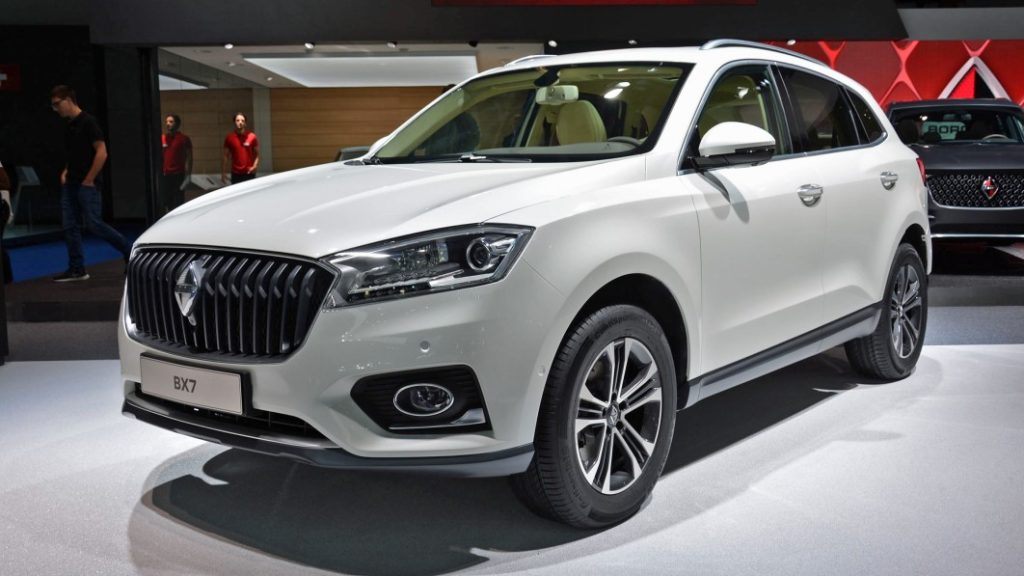Borgward declares bankruptcy for the second time

Borgward, a defunct German company resurrected by the Chinese in 2014, has filed for bankruptcy for the second time. The firm hoped to merge into the mainstream with a line of crossovers, and it planned to open a factory in Europe, but its sales plummeted in recent years.
Industry trade journal Automotive News Europe wrote that the First Intermediate People’s Court of Beijing declared Borgward bankrupt in November 2022. The publication adds that Borgward asked the court for permission to liquidate its assets, but details about the bankruptcy proceedings haven’t been released. Beiqi Foton Motor, a truck maker that’s part of the state-owned BAIC Group, bought Borgward in 2014.
Borgward announced its return in February 2015, displayed a classic Isabella coupe a month later at the Geneva Motor Show, and presented its first modern-day model at that year’s Frankfurt auto show. Called BX7 (pictured), the crossover landed with a generic-looking design and a trunk full of promises, including a pledge to make a comeback in Europe by late 2017. While a handful of cars seemingly made their way to Germany, the brand focused largely on the Chinese market and expanded its range with crossovers called BX3, BX5, and BX6, respectively.
Securing a foothold in a market as big and as crowded as China’s is easier said than done. Borgward’s annual deliveries peaked at approximately 55,000 units in 2019, according to Automotive News Europe, but fell to merely 3,600 in 2021. European sales were little more than a rounding error. The report notes Borgward posted losses totaling more than four billion yuan (over $564 million) from 2016 to 2018.
It’s the end of the line for Borgward, unless investors unexpectedly save it. While the company’s future plans were vague, it traveled to the 2017 Frankfurt Motor Show to present a concept called Isabella that previewed a design language which could have permeated the range.
This is Borgward’s second trip to the pantheon of automotive history. The company once enjoyed relative popularity in Germany, and it briefly sold cars in the United States, but it experienced financial problems in the 1950s and filed for bankruptcy in 1961. Mercedes-Benz ended up with the company’s Bremen, Germany, plant after a series of take-overs and currently builds the C-Class and the GLC there.



